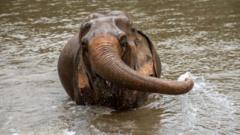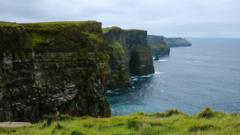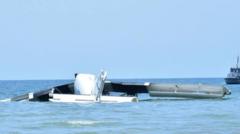The death of a Spanish student while bathing an elephant in Thailand raises questions about the ethics of wildlife tourism and the treatment of captive elephants.
Spanish Tourist Killed by Elephant in Thailand: An Ethical Dilemma for Wildlife Tourism

Spanish Tourist Killed by Elephant in Thailand: An Ethical Dilemma for Wildlife Tourism
A tragic incident highlights the dangers and ethical concerns of animal interaction in tourism.
In a tragic occurrence that has sparked outrage and debate, a Spanish woman was killed by an elephant while she was bathing the animal at the Koh Yao Elephant Care Centre in Thailand. The victim, 22-year-old Blanca Ojanguren García, reportedly sustained fatal injuries when the "panic-stricken" elephant gored her during what is typically a popular tourist activity.
Local police confirmed that García, who was studying law and international relations at the University of Navarra in Spain, was living in Taiwan for a student exchange program at the time of the incident. She was on holiday in Thailand with her boyfriend, who witnessed the attack. In response to the tragedy, Spain's Foreign Minister, Jose Manuel Albares, announced that the Spanish consulate in Bangkok is providing assistance to García's family.
Tourism involving elephants is a booming business in Thailand, where the country is home to an estimated 4,000 wild elephants, with an equal number held in captivity as well. The Koh Yao Elephant Care Centre offers various "elephant care" experiences, including feeding, bathing, and walking with the animals, with packages priced between 1,900 baht ($55) and 2,900 baht.
However, animal rights activists have long criticized these interactions, arguing they can lead to significant stress for the animals, disrupting their natural behaviors and well-being. World Animal Protection, an international charity, has called for an end to the breeding of elephants in captivity, stating that the social and emotional needs of these intelligent creatures cannot be met in artificial environments.
As the debate over ethical wildlife tourism intensifies, the incident underscores the urgent need for a reassessment of how animals are treated in the tourism industry and the implications for both their welfare and human safety.






















